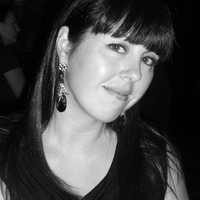Pride, Prejudice and Politics: Global Tensions in Effecting Sexual and Religious Rights
Dr Marian Duggan
It is Gay Pride season across the globe as many cities come together to celebrate all things lesbian, gay, bisexual, transgender and queer (LGBTQ). As well as promoting achievements, the Gay Pride parade has become a necessary political platform for many sexual minorities to demonstrate ongoing prejudice, inequality and oppression. The first ever Gay Pride Parade was held in New York, USA, as a mark of resistance by LGBTQ communities to state-sanctioned social, legal and political oppression. It was held on the anniversary of the three-day riot between police and LGBTQ patrons at the Stonewall Bar in New York in July 1969. Contemporary incarnations have grown from the traditional parade to week-long events raising awareness about different facets of LGBTQ lives and involving key community and statutory stakeholders. However, several parades have made the headlines for reasons that indicate that there is still progress to be made in some parts of the world with respect to equal rights, protections, liberties and freedoms for all.
This August, approximately 40,000 people turned out in Belfast to celebrate the 25th Gay Pride Parade, marking a significant level of progress for LGBTQ visibility in Northern Ireland. As usual, a small minority were in situ demonstrating their opposition to homosexuality with placards and signs citing passages taken from the Bible such as ‘Homosexuality is Sin’ and ‘The wages of Sin is Death’. While free to express their condemnation, protesters know that the Parade is given annual coverage in the local and national media. The publicity given to such condemnatory sentiments (displayed in highly visible textual and picture format) could be interpreted by those engaged in homophobia as giving licence to, or condoning, such prejudice. The Christian faith has been invoked by several Northern Irish organisations to avoid wholly complying with laws designed to protect sexual minorities from discrimination, as well as by Christian adoption organisations who have refused to accept lesbians and gay men as potential adopters. A number of ‘gay cake’ cases have also arisen involving bakeries refusing to provide cakes for same-sex weddings based on religious grounds.
The intersection of morally conservative religious and political ideology and the impact on LGBTQ equality was a key theme of this year’s Parade, with a focus on the struggle to extend equal marriage legislation to Northern Ireland. As a devolved administration the Northern Ireland Assembly retains some law-making powers, yet when given the opportunity has never freely enacted domestic legislation in favour of LGBTQ communities. This has usually been as a result of Unionist politicians’ opposition, witnessed again most recently again during debates to enact laws which would bring Northern Ireland in line with the rest of the UK and Ireland in permitting equal marriage.
The strength of negative feeling towards LGBTQ communities elsewhere has demonstrated the seriousness with which morally-informed homophobic prejudice must be taken. The stabbing of six people at Jerusalem’s Pride parade a few days earlier in July – including 16-year-old Shira Banki who later died from her injuries – by Yishai Schlissel, an Orthodox Jew, was shocking, but this was not his first attempt; Schlissel had just been released from prison following a similar attack on three people in 2005. Homosexuality is not criminalised in Israel; indeed the policies pertaining to gay rights are fairly liberal, yet religious hostility remains evident. At July’s Parade, a small group of right-wing religious activists were granted permission by the Israeli police to protest the event, indicating the balancing act to be struck by some between freedoms of expression on the basis of sexuality and spirituality, whatever the denomination.
Jamaica’s first ever Gay Pride celebration took place in Kingston earlier this August, indicating a significant development for LGBTQ communities there. A series of events included a flash mob gathering, an art exhibit, LGBTQ Jamaicans performing their songs and poems and a dance party; notably, no Parade for the time being. Hostility towards homosexuality is still a serious issue in Jamaica; as a former colony, legislation pertaining to homosexuality on the island is informed by British law and remains in force with no indication of change on the horizon. However, the growing visibility of LGBTQ communities may be a necessary start to slowly shift social, and legal, attitudes.
Contested events which have taken place indicate the continued struggle for some where freedom of sexual identity remains restricted. Attempts at an event in Russia, where expressions of homosexuality are severely sanctioned, indicate the bravery of those seeking to effect change. In Turkey, where the planned Istanbul Gay Pride Parade was cancelled at the last minute, protestors amassed to indicate their strength of feeling against state-sanctioned oppression. However, in Uganda, the first Gay Pride Parade took place in August, demonstrating the progress made in the twelve months since the scrapping of the controversial anti-homosexual law proposed by Uganda’s president, Yoweri Museveni.
Gay Pride Parades were never designed to convert people, to denigrate heterosexuals or to incite violence. If anything, members of LGBTQ communities are among the least likely to engage in ideology-based violence, victimisation and extremism. It may be far-fetched to suggest that sexual minorities might picket places of worship with banners highlighting the atrocities carried out in the name of various faiths, but this would be no more than a re-appropriation of the words and images they themselves have endured. At a time when huge progress in LGBTQ rights is being witnessed through marriage legislation arising through legislative reform in England and Wales, popular vote via a referendum in Ireland and a ruling by the Supreme Court in the USA, it is important to remember that in some places, the tentative first steps towards sexual minority equality are still being taken.
Dr Marian Duggan is a lectuer in criminology at the University of Kent, Canterbury

